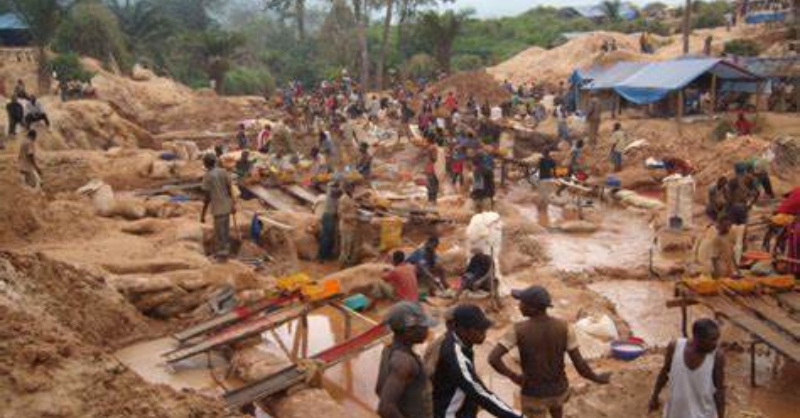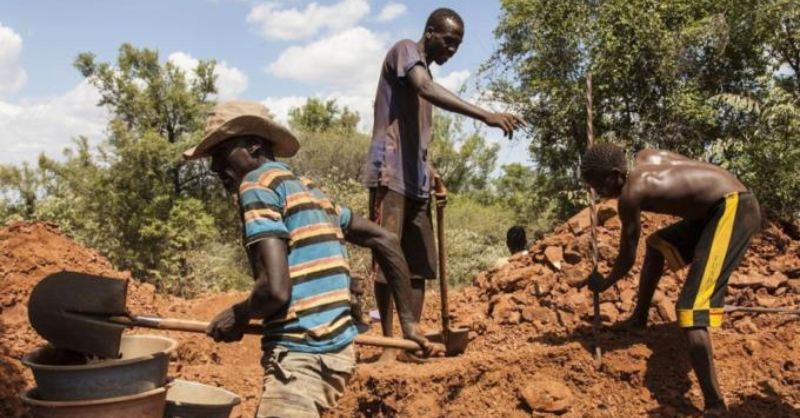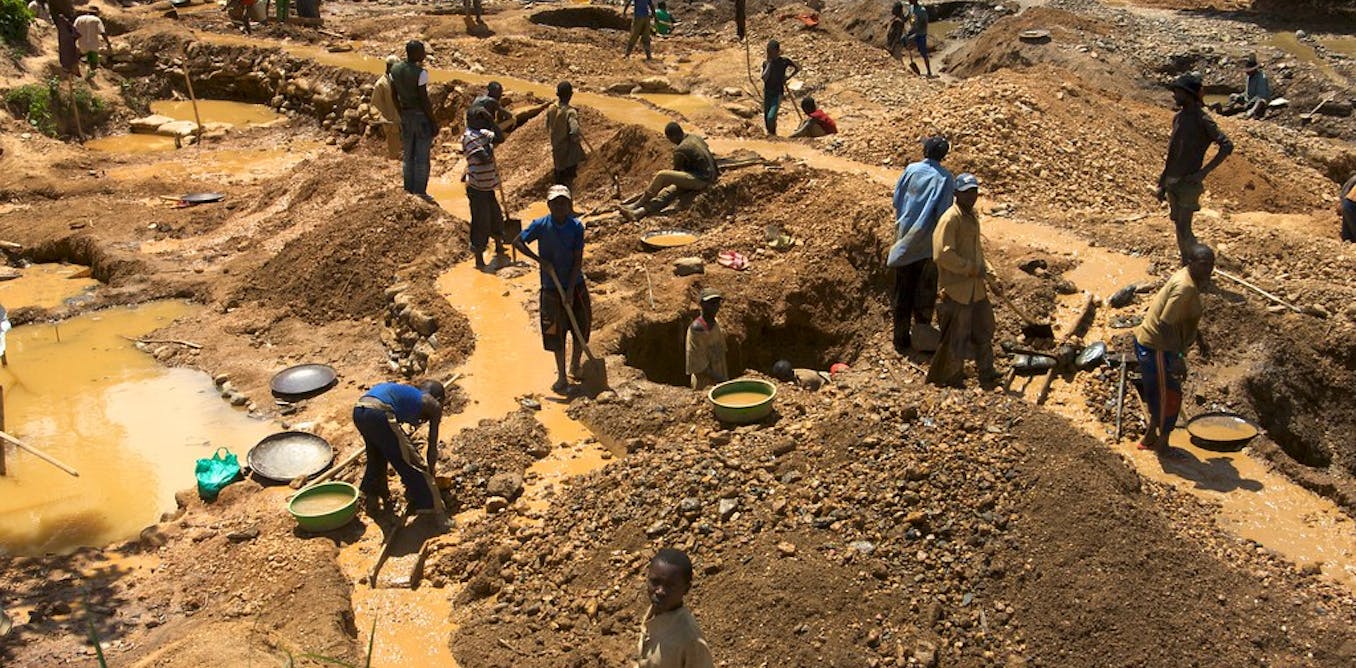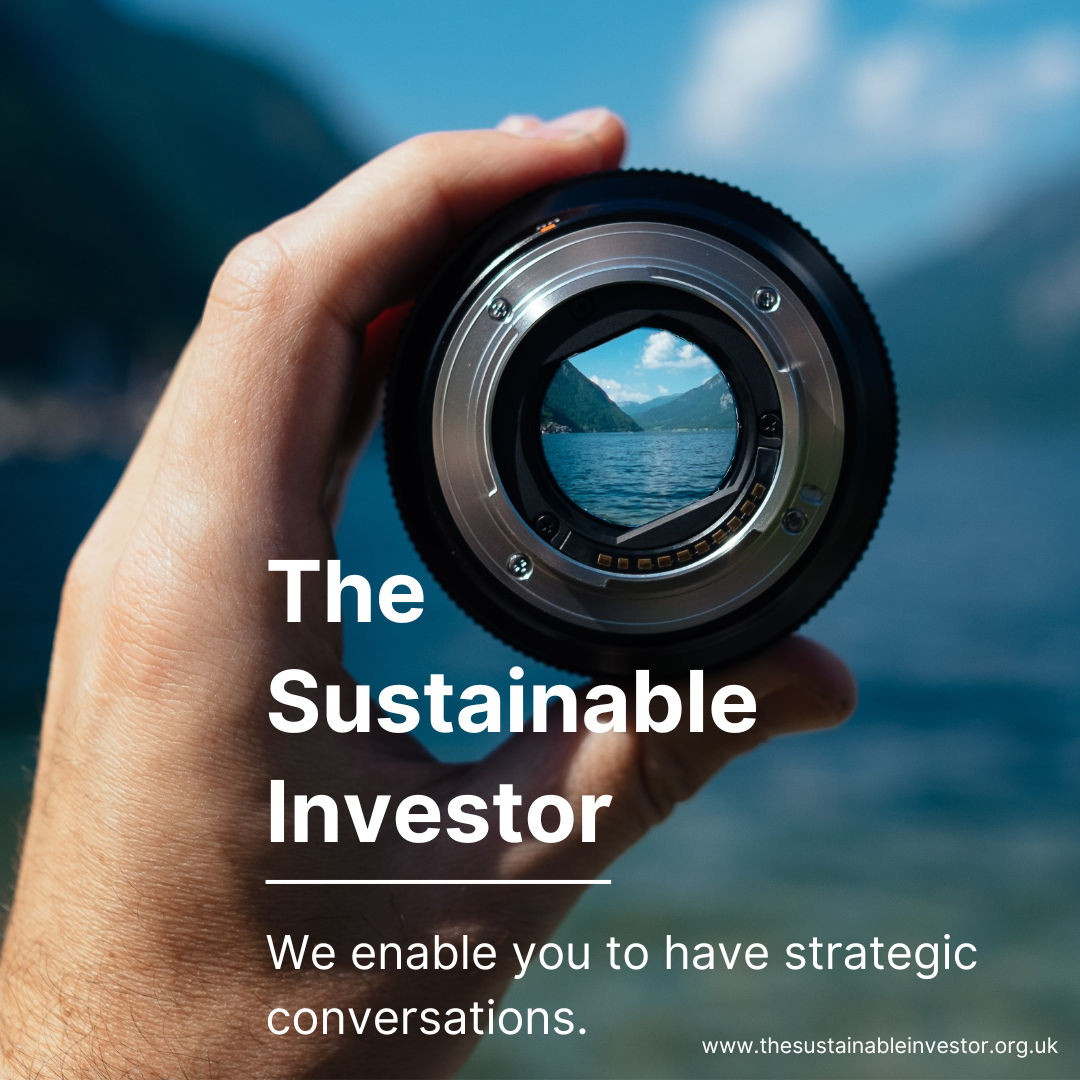
Formalisation - the answer to artisanal mining?
One solution is to formalise the ASM sector, making it possible for the miners to legally earn a living. This is a good solution, but we need to recognise that each location has its own specific challenges - there is not a single catch all solution.
Summary: The challenges around Artisanal and Small scale Mining (ASM) are not going away. One solution is to formalise the sector, making it possible for the miners to legally earn a living. This is a good solution, but we need to recognise that each location has its own specific challenges - there is not a single catch all solution.
Why this is important: There are broadly two reasons why investors should care about finding a solution to the challenges in ASM. One relates to fairness, ASM opens up communities to exploitation. The second reason is, if we care about supply chains, then we need to care about where our raw materials come from.
The big theme: We are going to rely on mining to deliver the raw materials we need for the Sustainability Transitions. And, our supply chains are coming under greater attention. Not just from a social perspective, but also legally. This means the challenges around ASM will become, if anything, even more prominent.

The Detail
Summary of an article from Resources Policy
Shitima & Suykens: Formalization of sand mining in Dar es Salaam, Tanzania - May 2023
While artisanal and small-scale mining has gained the attention of policy makers and academic researchers, very little is known about the organisation and governance of sand extraction. Journalistic and activist accounts of the destructive nature of sand mining have boomed, often focusing on the illegal, violent and criminal aspects of the sand trade. But this is only part of the picture.
It is necessary to go beyond a criminalisation and mafia perspective, looking as well at the different governance regimes around sand mining. Given booming sand extraction in many parts of Sub-Sahara Africa, policy makers, both at the national and international level, should take stock of governance efforts for sand mining in the Dar Es Salaam area , including a clear focus on Artisanal and Small-Scale Mining (ASM) formalisation.
We highlighted this research report very deliberately, to ensure the ASM focus isn't just on critical minerals such as cobalt, or on high value metals such as gold. Artisanal mining is everywhere.
Despite the strategic importance of sand, its extraction, sourcing, use, and management remain largely ungoverned in many regions of the world, leading to numerous environmental and social consequences that have to date largely been overlooked.
The United Nations Environment Programme, in a 2022 report, highlighted that :
In much of the written literature and media on sand and sustainability, the only reference to the large number of – often informal – sand and aggregate miners in developing countries is as criminals, using pejorative and stigmatising terms such as ‘illegal sand mining’ and ‘sand mafia.’
Having made our points, ASM is everywhere and it's not always criminal, we hand over to Rob Karpati from The Blended Capital Group. This is the third blog that Rob has written for us on this topic.
In it he starts to explore how formalisation of ASM can work, who needs to be involved, and why each case if different. We cannot think of formalisation as a catch all solution, but as a framework for addressing the challenges, tailored to each individual situation.
The majority of this blog is from Rob, except for the fairly copious 'Editors Notes', (in italics) which is us.
Over to you Rob ....
What is ASM formalisation?
Artisanal mining formalisation involves shifting the industry toward legally recognized stable business relationships for miners. This creates real potential for significantly shifting outcomes on dignity, human rights and productivity for miners, while catalyzing sustainable development for last mile communities in mining regions.
Editors note - if you want to understand the broader context and scale of ASM, we suggest you read Rob's earlier blogs, either by going to our website (www.thesustainableinvestor.org.uk) and putting 'artisanal' in the search function, or by reading the most recent blog and then working backward.

Back to Rob ....
There is no single approach for the formalisation of artisanal mining. With the large majority of the world’s 45 million artisanal miners being informal, a broad diversity of socio-economic and cultural realities represents the starting point.
First, artisanal miners lack access to financing given investor concerns about sectoral risks. This means they often remain a subsistence style operation. An investment marketplace based on aligned standards and flexible practices is necessary for accessing significant financing that will support formalisation.
There are several stakeholders connected with ASM where alignment on standards and practices are necessary. The big player's that we need to involve include:
- Large mining companies – as ASM often takes place on their land concessions
- End-customers - who increasing need assurance of responsible practices along with stability of supply
- Governments - as no change can take place without both appropriate legislation and practical regulatory systems.
But, the process needs to go deeper than this. We also need to include:
- Mining value chain players including refineries – who can provide validation of responsible standards as well as traceability of minerals, mitigating PR and legal risks across the value chain.
- The communities where ASM takes place - without their buy-in, nothing will change,
and obviously .... the miners themselves, plus all investors concerned with the risks that ASM bring, and the potential rewards when we find solutions.
Progress is being made. The UN Mining 2030 Investor Commission is spear-heading the development of standards and flexible frameworks that will be instrumental for step-changes in investment.
Second, we need to make the legal frameworks clearer. Participants in the sector are often deemed illegal, a historical choice and a barrier to formalising business relationships. Legal frameworks do not mean standards and bureaucracy imposed on miners. In this context it means differentiated rights and responsibilities given country-level sectoral realities.
Everywhere is different
Flexible frameworks for formalising will look different in differing places, simply because the context and reality of miners is diverse. Common elements in solution design and implementation include:
- Include the voices of miners – solutions are not imposed, they are developed collaboratively based on what makes local sense – this means that flexible frameworks need to explicitly focus on voices of miners, resulting in solutions that make ground-level sense
- We need more data – local realities need to be understood in order to engage in apt discussions that lead to fit for purpose solution design. Data planning and gathering is an important aspect of formalisation
- Transform the value chain – value-chain wide views are necessary to validate approaches for organising miners into cooperatives or associations, for reengineering product flows so that middle layers not adding value are eliminated and for considering product traceability
- And finally, keep our eyes firmly on outcomes – the purpose of formalisation is to shift outcomes on human rights, the dignity and productivity of work and on last-mile sustainable development. Solutions need to be assessed based on implications against relevant criteria.
Editors note - we specifically asked Rob to include Ghana in this blog. Ghana was one of the first countries in Africa to promulgate a small-scale mining law. Ghanaian mining codes not only recognise artisanal and small-scale mining as a legitimate livelihood source but also establish a framework aimed at formalising it.
So far, though, the regulation of artisanal and small scale mining in Ghana has been mostly unsuccessful. More than 85% of small-scale mining operations still occur in the informal and illegal sector of the economy and remain largely unregulated. There are a number of reasons for this, but one key issue seems to be the nature of the regulation. As the authors of this article state
"The burdensome, costly and overly time-consuming licensing process needs reform".
This doesn't mean that the idea is wrong, just the process that came out of it.

Back to Rob ....
Ghana is an example of a country with significant opportunities. There are 1.2 million artisanal miners with 4.5 million people directly supported by ASM. Of the 1.2 million, 750K people mine gold, producing 35% of Ghana’s gold. Despite some success in formalising ASM, 60-85% of artisanal miners in the country are still informal. Regulatory attempts to formalise the sector have met with limited success, due to a combination of expensive licensing and standards that do not differentiate for local realities. Miners themselves face a combination of safety, corruption and human rights issues.
Formalising artisanal gold mining in Ghana requires investment as well as changes to legal frameworks that make them fit for purpose in the sector. Engagement itself that leads to formalisation needs to include:
1. Data gathering that validates baseline realities as well as opportunities
2. Extensive stakeholder dialogues that include large mining operations, downstream refineries and other value chain players, artisanal miners themselves and communities in mining regions
3. Solutions will need to consider organising miners into cooperatives while reengineering downstream product flows in ways that eliminate redundant middle layers. Equipment, training on best practices, access to geological data and safety training are all naturally in scope
4. Potential solutions will need to be validated and adjusted through implementation phases in order to ensure that key impact areas on human rights, dignity, productivity and development are delivered
Final editors note - we have taken three main lessons from Rob's blogs. First, ASM is much more widespread than we thought. Second, it's in everyone's interest's to find a solution to ASM. This includes the mining companies and investors. And third, every solution will be local. This makes the challenge harder, but it also tells us where to focus our efforts: on the ground.
Something a little more bespoke?
Get in touch if there is a particular topic you would like us to write on. Just for you.
Contact us
Please read: important legal stuff.



